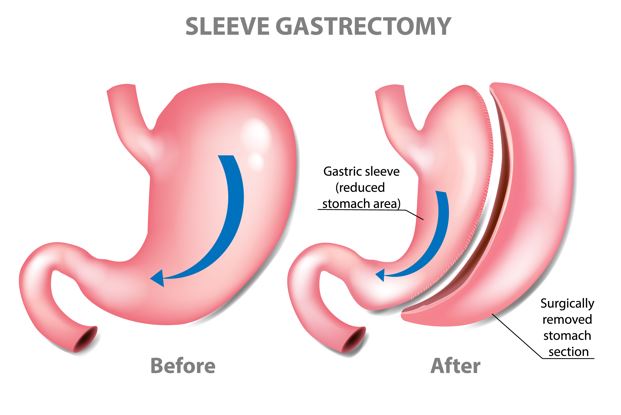The Gastric Sleeve: An Effective Weight Loss Surgery On Its Own or The Previous Step to A Gastric Bypass?
Nowadays, obesity can be considered a worldwide epidemic and a major cause of preventable death. So, trying to stay on your ideal weight goes beyond vanity; it is a matter of health.
If you’ve tried to lose weight through diets and exercise for years without success, maybe you could consider a gastric sleeve.
After all, it is the most popular weight-loss surgery worldwide. But since there are other bariatric procedures available, you may be confused about which one is right for you.
You must be aware of the risk and benefits of the gastric sleeve, how is the procedure, and the long-term commitments you need to make not to regain any weight.
What Is the Sleeve Gastrectomy?
A gastric sleeve is a type of weight-loss surgery that involves removing a large part of your stomach (nearly 80%) to reduce its original size. The result is a sleeve (hence the name) or tube-shaped stomach similar to a banana.
Your stomach will end up being much smaller than it was before. It will only hold about 50-100mL of fluid (the equivalent of a ½ cup of tea).
This restrictive method dramatically reduces the total amount of food you can eat. With a smaller stomach, you will feel full faster and with less food!
A gastric sleeve also produces hormonal changes, including less production of the appetite-regulating hormone called ghrelin so that you will feel less hungry. But, this surgical procedure will not affect the absorption of nutrients and calories in the intestines.
The weight loss mechanisms of a gastric sleeve rely on a combination of restriction, hormonal factors, eating habits, and changes in gastric emptying. However, gastric restriction plays the most important role. But even though the surgery is irreversible, there could be some dilation of the stomach afterward if you don’t follow your nutritionist’s instructions.

Written by Dr Osama Bahsas Zaky (Bariatric surgery specialist)
Updated on January 18, 2022

















